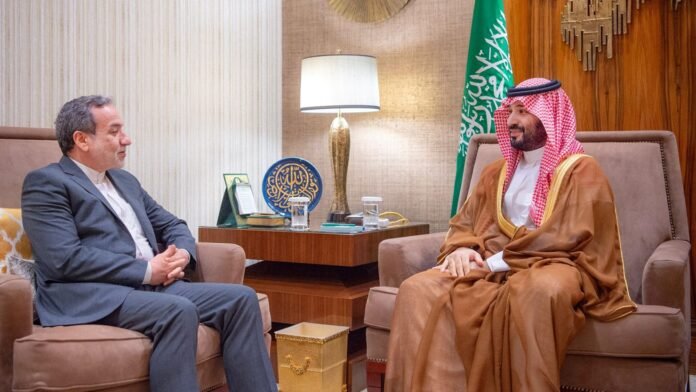RIYADH — Saudi Arabia has expressed its willingness to mediate between the Trump administration and Iran in an effort to forge a new agreement to limit Tehran’s nuclear program. This information comes according to sources familiar with the discussions. The kingdom’s strategic position and diplomatic influence in the region make it a potential facilitator for a new round of talks. These talks aim at mitigating the growing concerns over Iran’s nuclear ambitions.
The move reflects Saudi Arabia’s growing desire to leverage its improving relations with the Trump administration. It also aims to position itself as a key player in regional diplomacy. Riyadh is particularly concerned that Iran might be more inclined to pursue nuclear weapons as a countermeasure. This comes after Iran’s regional influence has been significantly diminished by recent setbacks to its allied groups. With Iranian-backed proxies losing power across the region, Saudi officials fear Tehran may seek to develop a nuclear deterrent.
Though it is unclear whether Saudi Arabia has formally offered to mediate, the kingdom’s interest in securing a role in a potential new deal is evident. President Trump has expressed a willingness to negotiate a fresh agreement. However, the signals from Iran have been mixed. Iranian Supreme Leader Ayatollah Ali Khamenei recently declared that talks with the U.S. were “not smart,” echoing Tehran’s skepticism toward engagement. This skepticism remains especially strong after the U.S. unilaterally withdrew from the 2015 nuclear deal.
Saudi Arabia, which had publicly supported the 2015 agreement, had significant concerns about Iran’s regional activities. These activities include its missile program and support for proxy groups. The Kingdom was particularly critical of the Obama administration’s failure to address these issues. This led to its support for Trump’s 2018 withdrawal from the deal.
Tensions between Saudi Arabia and Iran have eased notably since March 2023, when the two countries brokered a surprise agreement to normalize relations. This was achieved with China’s assistance. Saudi officials view this breakthrough as a success, as it has helped reduce regional tensions. These reductions include the cessation of Houthi attacks on Saudi soil. The normalization process has also shielded Saudi Arabia from the broader Middle East conflict, despite the ongoing tensions between Israel and Iran.
Saudi Arabia now sees a unique opportunity to de-escalate tensions further and prevent a nuclear-armed Iran. The kingdom believes that a weakened Iran does not serve its interests. Its desire for a new nuclear deal is motivated by both security concerns and its broader strategy of economic growth and regional stability.
While President Trump prefers a new deal to prevent Iran from acquiring nuclear weapons, his efforts to engage Iran have been met with skepticism. Even as Iran’s economy struggles under U.S. sanctions, Iranian officials have expressed mixed signals about entering negotiations. Some officials have shown openness to dialogue. However, others, including Khamenei, remain resistant to any talks with the U.S. They cite the country’s withdrawal from the previous agreement.
The international community’s focus now turns to whether Saudi Arabia can play a pivotal role in bringing the U.S. and Iran back to the negotiating table. The kingdom’s ability to navigate this delicate diplomatic challenge could have lasting implications for regional stability and global security. This is especially true as it seeks to diversify its foreign policy approach.
As the situation evolves, Saudi Arabia’s growing influence and willingness to act as a mediator may shape the future of negotiations. This will also affect efforts to curb Iran’s nuclear ambitions.


